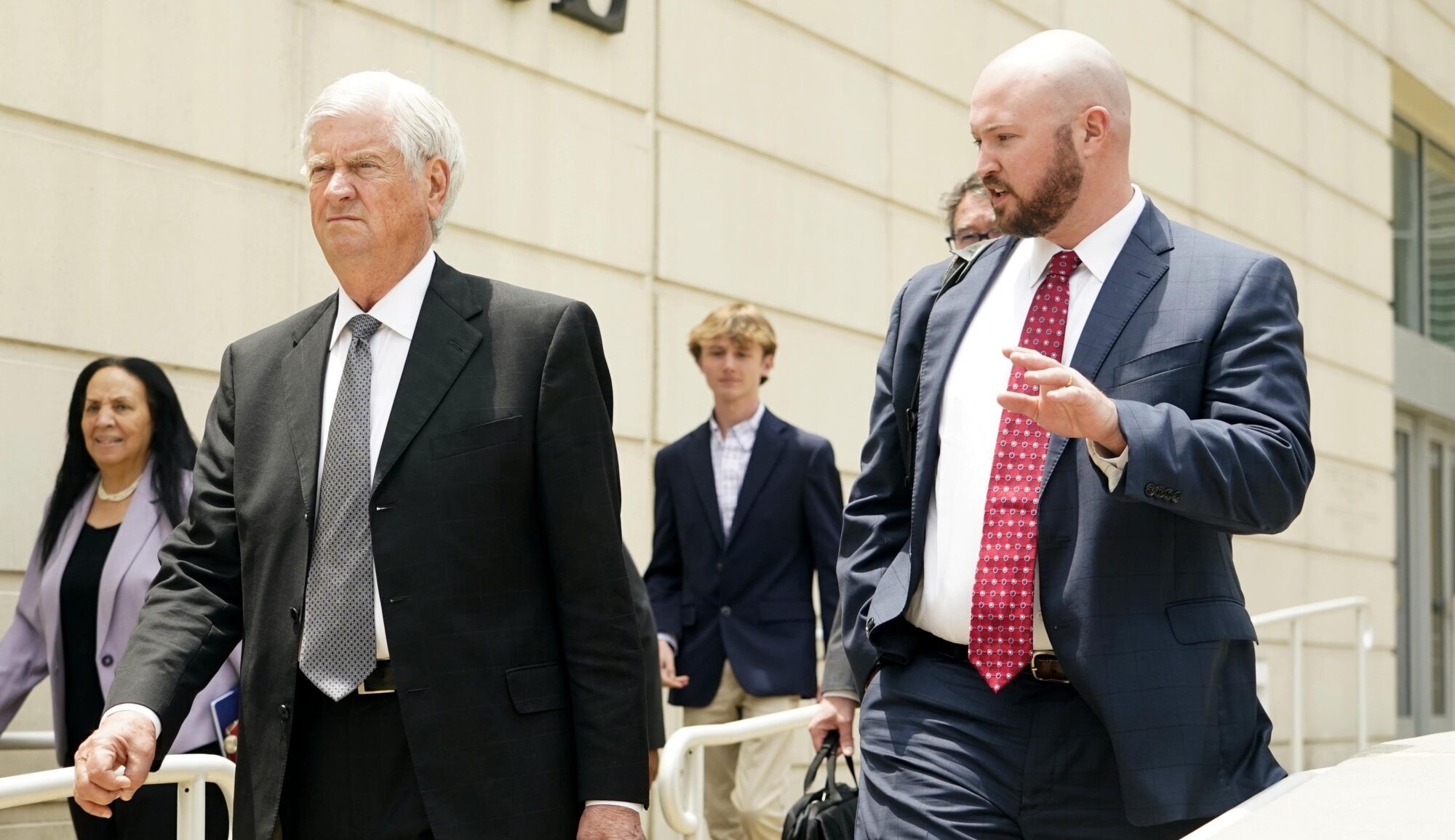
Mississippi Supreme Court Chief Justice Mike Randolph, left, and his attorney Ned Nelson, exit the Thad Cochran United States Courthouse in Jackson, Miss., Monday, May 22, 2023, for a lunch break, during the first day in federal court where a judge is hearing arguments about a Mississippi law that would create a court system with judges who would be appointed rather than elected. (AP Photo/Rogelio V. Solis)
The Mississippi Supreme Court will hear arguments on Thursday related to the controversial bill which calls for the Chief Justice to appoint temporary judges in the capital city.
Mississippi Supreme Court Chief Justice Michael Randolph has recused himself from overseeing an appeal centered around House Bill 1020 that was signed into law by Governor Tate Reeves.
The state’s high court is expected to hear arguments on the case on Thursday.
The lawsuit was filed in May by three Jackson residents – Ann Saunders, Sabreen Sharrief, and Dorothy Triplett. The appellants believe the law passed by the Mississippi Legislature impedes on their rights as residents.
HB 1020 allows for the Mississippi Supreme Court Chief Justice to appoint four temporary judges while expanding the Capitol Complex Improvement District (CCID) and the jurisdiction of the Capitol Police.
The recusal came on Monday in a 16-page letter written by Randolph who was originally named as a defendant in the case. Randolph has maintained that he unequivocally is not a proper party in the proceedings. The Chief Justice has reiterated that he has no opinion of HB 1020 but would have enforced it if it was law.
Randolph wrote that the motion is “largely speculative, baseless, and (at times) inaccurate.”
“While Appellants repeatedly emphasize the term ‘might’ in Rule 48C(a)(i), they fail to acknowledge the presumption that all judges (including the Chief Justice) are ‘qualified and unbiased’ and they expend no effort to reveal the events surrounding the Chief Justice’s statements despite the controlling standard contemplating ‘a reasonable person knowing all the circumstances,’” wrote Randolph.
Hinds County Chancery Judge Dewayne Thomas has removed Randolph from the lawsuit. Randolph believes he was initially added as a defendant in the case because he would be forced to recuse himself. He called this strategy something similar to “judge-shopping.
“The representations and innuendos conjectured in Appellants’ motion, peppered with minimal facts, lacks a solid foundation,” Randolph wrote.
Judge Thomas later dismissed the entire challenge, leading to the current appeal to the Mississippi Supreme Court.
Prior to recusing himself, Randolph indicated that he considered seeking a final decision on judicial immunity separate from the appeal. However, he did not intend to contribute to delays that would cause.
“The Mississippi Supreme court must be shielded from unnecessary criticisms that would surely result if I delayed the proceedings,” wrote Randolph.
The law was set to go into effect on July 1 but has been halted due to multiple lawsuits.











